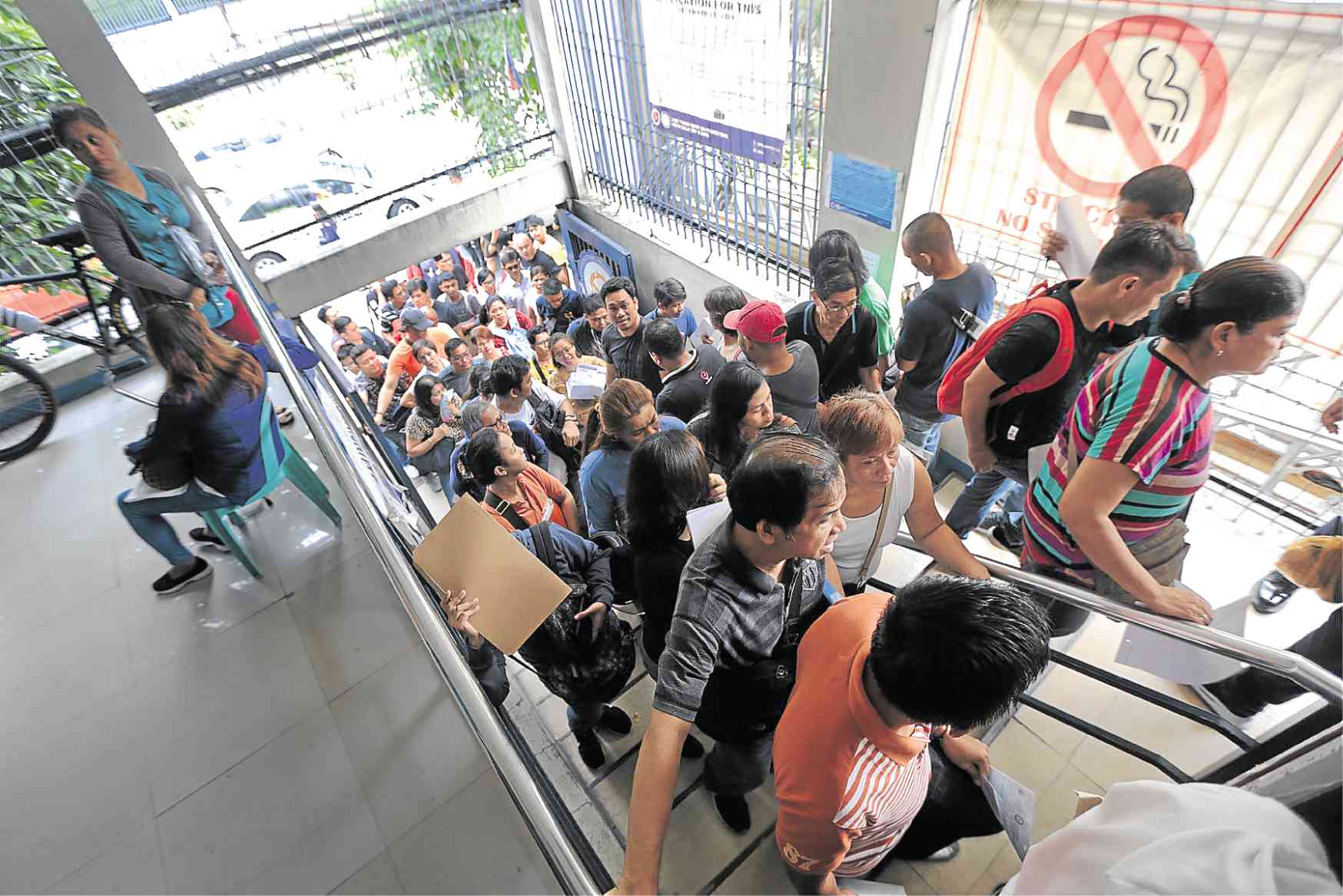Anti-Red Tape Authority targets LTFRB

THE LONG WAIT Patience is certainly a virtue for applicants seeking a TNVS franchise as they line up at the Land Transportation Franchising and Regulatory Board office in Quezon City. —GRIG C. MONTEGRANDE
MANILA, Philippines — The Anti-Red Tape Authority (Arta) has demanded an explanation from the Land Transportation Franchising and Regulatory Board (LTFRB) on allegations that there were irregularities in its processing of hatchback drivers’ applications to become transport network vehicle services (TNVS) units.
In a notice of explanation sent to the agency on Wednesday, Arta director general Jeremiah Belgica ordered LTFRB Chair Martin Delgra III to comment, within three days, on seven issues regarding the processing of TNVS applications, including the transport board’s alleged failure to implement Memorandum Circular No. 2018-5.
Obsolete memo
The memorandum circular, now rendered obsolete by a recent order issued by the Department of Transportation (DOTr), allowed hatchback vehicles to operate as TNVS units only until 2021 within Metro Manila.
Despite the circular, thousands of hatchback drivers were removed from a ride-hailing app’s platform in a one-time purge in June. In addition, the LTFRB did not recognize the applications submitted by other drivers, saying that only those already on the original TNVS master list were qualified to join transport network companies like Grab.
Article continues after this advertisementBelgica also noted the LTFRB’s failure to process applications either for the issuance or renewal of certificates of public conveniences (CPC) and provisional authority (PA) within the time indicated on its forms.
Article continues after this advertisementOther complaints focused on the unreasonable delays in the conduct of hearings or in the rendering of decisions, and the imposition of additional requirements and “undue regulatory burden” on applicants without due cause.
These included a bank conformity and proof of existence and sufficiency of garage. Applicants were also required to personally file their forms in a long orange folder.
Lastly, Belgica took note of the “inconsistent, arbitrary and varying interpretations of the rules and regulations on TNVS applications” and the “abrupt changes” in the procedure for processing these applications.
Delgra’s response would determine whether the LTFRB was in violation of Republic Act No. 11032, or the Ease of Doing Business Act.
Sought for comment, Delgra said the agency would inform Arta of the changes it had put in place to facilitate transactions.
In an earlier dialogue with TNVS drivers, the LTFRB chair said the agency was already using 70 to 80 percent of its resources just to process their applications.
Legal action
In June, some of the deactivated hatchback drivers filed a petition for mandamus in the Quezon City Regional Trial Court to compel the agency to enforce the memorandum circular.
The case is still ongoing despite the newly approved DOTr order which directed the LTFRB to allow hatchbacks to operate permanently as TNVS units, not just until 2021.
The order, according to Assistant Transport Secretary Goddes Libiran, would apply not just to those on the original TNVS master list, but also to the ones who applied for accreditation with the LTFRB.